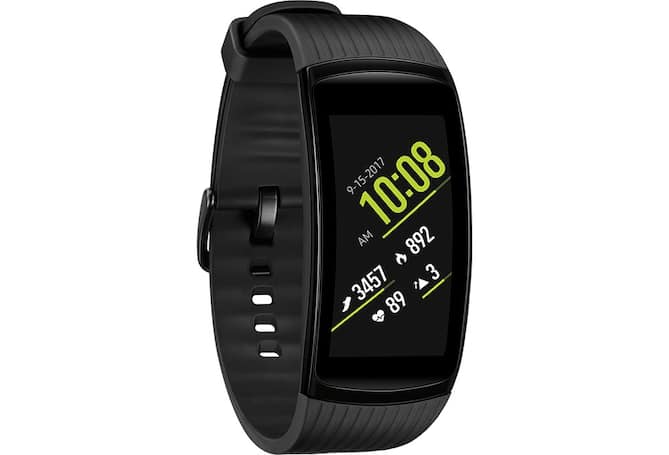Fitness Tracker and Smartwatch Differences

carousel
Fitness trackers and smartwatches have changed the way we monitor our health and stay connected in the modern age. Although both devices initially seem similar, they actually serve distinct purposes and offer a unique range of capabilities.
A fitness tracker monitors and tracks various aspects of your physical activity and overall health. A smartwatch essentially serves as an extension of your smartphone, providing convenient access to various features and applications. Helping you navigate the evolving landscape of wearable modern technology, we will delve into the contrasting features and functionalities of fitness trackers and smartwatches.
What is a fitness tracker?
Fitness tracker benefits
Fitness trackers should always be included when you are looking into how to choose the best fitness equipment for your needs because of how beneficial they can be. The benefits of wearing a fitness tracker can include:
- Activity monitoring. Counting every step you take while also tracking distance traveled and the amount of estimated calories burned throughout the day, fitness trackers encourage you to stay active and reach daily activity goals.
- Training plans and guided workouts. Some fit trackers come with preloaded training plans and workouts while others offer more personalized fitness regimens to better align with your individual level and needs.
- Sleep tracking. While monitoring and analyzing your sleep patterns, most exercise trackers provide valuable information about the duration and quality of your sleep. Although sometimes overlooked, adequate sleep is important for both you mental and physical wellbeing.See Disclosure 2
- Heart rate monitoring. Heart rate fitness trackers have optical sensors that detect changes in blood flow to measure the heart rate. Real-time data allows you to monitor exertion and intensity levels, which is particularly useful during cardio workouts, like running and cycling.
- Reminders and social engagement. Fitness trackers can be setup to notify you to move or take short activity breaks to promote a healthy, active lifestyle throughout the day. Plus, most fitness trackers allow you to connect with friends, join community challenges and share your achievements.
Although fitness trackers are not as precise as actual medical equipment monitored by professional healthcare workers, they are still a very useful tool when setting health and fitness goals. It is also important to note that even though fitness watches can provide structure and guidance to your workout, you should still consult with a fitness professional if you have any specific health concerns or needs.
What is a smartwatch?
Smartwatch benefits
Every age group can find value in a smartwatch. The benefits of a smartwatch for seniors are particularly plentiful, helping them navigate through a healthy lifestyle. Other benefits of wearing a smartwatch can include:
- Instant communication features. With a paired smartphone nearby, a smartwatch allows you to receive alerts and notifications on your wrist. Incoming calls, text messages, emails, social media notifications and alerts from other apps can all be easily responded to with a smartwatch.
- Convenience and time management. Smartwatches offer various features that can potentially enhance convenience and efficiency. Quick access to weather forecasts, calendars, reminders and to-do lists can boast productivity and make the overall day-to-day easier.
- Music and other media. Music, podcasts and other audio from a smartphone or other smart device can be controlled and played directly on a smartwatch through Bluetooth. This allows you to adjust the volume, skip tracks and pause or play audio without taking out your phone. Some smartwatches also have built-in storage that allows you to stream audio directly from the watch.
- Easy payment solutions. Many smartwatches support mobile payments, allowing you to make purchases directly from your wrist. Compatible payment platforms, such as Google Pay, Apple Pay or Samsung Pay, make purchasing items on-the-go faster and easier.
- Fitness tracking. Although some may not be as equipped at analyzing your workouts and overall health as a fitness tracker, smartwatches are still capable of incorporating health tracking features, such as counting steps and monitoring workouts as well as providing navigation assistance through GPS.
Fitness trackers vs. smartwatches
Fitness trackers excel at monitoring and analyzing various health and activity metrics, providing a comprehensive overview of your workout regimen and overall wellbeing. Basic functionality like giving you the time and date is still included, but fitness trackers are typically meant exclusively as a tool to promote a healthy lifestyle. While a smartwatch can serve as a useful companion while staying active, the watch also includes a broader range of convenient features.
If you are unsure what device is the best option for you, it all comes down to individual priorities and the specific features you value most. Whether you are focused on fitness and health tracking or you desire a multi-functional wearable device, both options can enhance your lifestyle and help make daily activities more convenient.
References
1. Lashkari, Cashmere. “Types of Sensors in Wearable Fitness Trackers.” News-Medical.net. AZoNetwork. February 26, 2019. https://www.investopedia.com/articles/investing/021816/3-predictions-tv-next-10-years.asp.
2. Worley, Susan L. “The Extraordinary Importance of Sleep.” Pharmacy and Therapeutics. CORE Medical Journals. December 2018. https://www.ncbi.nlm.nih.gov/pmc/articles/PMC6281147/.
Additional information:
These statements and any information contained herein are intended for educational purposes only and are not meant to substitute for medical care or to prescribe treatment for any specific health condition. Carefully review product labels for instructions and important safety information and consider consulting with a health care professional regarding your use of health and wellness products.